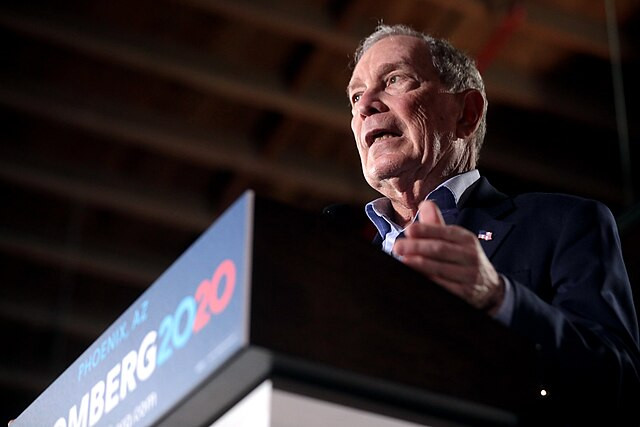Former New York City Mayor Michael Bloomberg has publicly criticized the Democratic Party's handling of President Joe Biden's declining health and their last-minute decision to nominate Vice President Kamala Harris as a replacement candidate. In an op-ed published Thursday on his media platform, Bloomberg laid bare his concerns, suggesting that Democrats miscalculated by concealing Biden's condition and making an eleventh-hour switch, which he believes contributed to their loss to Donald Trump in Tuesday's election.
Bloomberg, a billionaire media mogul and former presidential candidate, argued that Democrats should reflect on how they allowed Trump, whom he described as "an ailing 78-year-old who much of the country despises," to return to power. "It probably wasn't great to cover up President Joe Biden's infirmities until they became undeniable on live TV," he wrote. He went on to criticize the party's choice of Harris, stating, "It wasn't ideal for 'party elders' to replace him with Harris, a nominee who had received no electoral votes and had failed decisively in a previous presidential run."
President Biden, 81, announced his withdrawal from the 2024 race in July, following a poorly received debate performance that deepened concerns about his age and cognitive abilities. Polls showed that nearly 77% of Americans believed Biden was too old for another term, a sentiment that grew increasingly difficult for the party to ignore. After his exit, Biden endorsed Harris and handed over his campaign infrastructure, marking a pivotal transition for the Democrats as they prepared for the general election.
Bloomberg's critique extended beyond the party's handling of the presidential ticket. Reports indicate that he made a $50 million donation to a nonprofit supporting Harris' campaign, although he did so reluctantly. Privately, Bloomberg expressed doubts about Harris' candidacy and reportedly insisted on secrecy surrounding the donation. His hesitancy underscored broader concerns within the party about Harris' ability to defeat Trump, given her previous struggles on the national stage.
The former mayor's frustrations were compounded by his extensive financial contributions to Democratic efforts over the years. In 2020, Bloomberg spent over $250 million to help elect Democratic candidates and thwart Trump's reelection. Despite those investments, he remained unconvinced by the party's leadership decisions this cycle. "Democrats might ask themselves how exactly they lost to Trump again," he remarked, pointing to strategic missteps and an apparent lack of cohesion.
Bloomberg, who voted early for Harris and publicly endorsed her candidacy, acknowledged her strengths in reaching out to diverse groups of voters. "I've been impressed by the way Vice President Harris has run her campaign: reaching out to independents and Republicans and rallying voters of all parties by offering a positive vision of the country," he wrote in a LinkedIn post. Nonetheless, Bloomberg's support did little to mask his underlying reservations about the party's approach and its handling of Biden's transition.
The billionaire's criticism comes amid broader scrutiny of the Democratic Party's strategy and its apparent struggle to maintain unity in the face of Trump's political resurgence. With Republicans regaining control of both chambers of Congress, Democrats find themselves grappling with the aftermath of a contentious election cycle. Bloomberg's pointed commentary reflects the tensions simmering within party ranks as leaders seek to understand what went wrong.
Bloomberg's political career and influence extend far beyond this election. As the founder of a multibillion-dollar media and financial data empire, he remains a prominent voice in both politics and business. In recognition of his contributions to public service and philanthropy, Bloomberg received the Presidential Medal of Freedom from President Biden earlier this year. Despite his criticism, Bloomberg emphasized his continued commitment to supporting the Democratic Party's broader goals, including fostering unity and advancing policies that benefit the nation.
In his op-ed, Bloomberg urged Democrats to reconsider their approach to leadership and strategy. "We need to ask hard questions about how we got here and what we can do differently," he concluded. As the dust settles from a tumultuous election season, Bloomberg's critique serves as both a reflection on past missteps and a call to action for a party at a crossroads.






